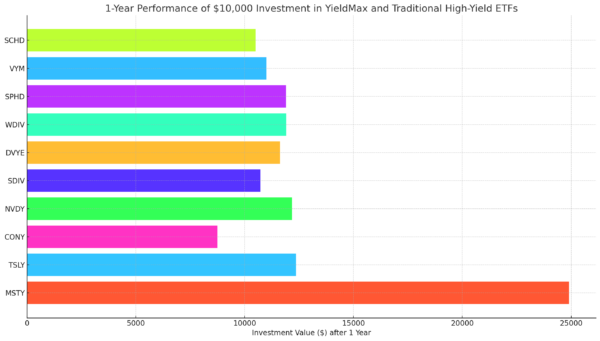Should You Own REITs?
I’ve been getting a lot of emails about REITs lately. These are companies that own various forms of real estate and by law must pay out 90% of their profits in dividends.
As a result, the dividend yields on REITs are higher than the yields on most stocks.
REITs typically invest in a specific area in real estate. You can find REITs that are focused on shopping malls, apartments, student housing, cellphone towers, data centers, senior care facilities, private prisons, industrial properties, self-storage, mortgages and more.
Together, REITs own $3 trillion worth of real estate in the U.S.
They each have benefits and challenges specific to their industry. For example, changes to Medicare can have a big effect on senior care REITs. The COVID-19 pandemic impacts retailers’ ability to pay rent to mall REITs.
It’s certainly understandable that REITs have underperformed the market since the pandemic-caused sell-off.
Since the market high on February 19, the S&P 500 is down 10%, but the Vanguard Real Estate ETF (NYSE: VNQ), the largest real estate exchange-traded fund (ETF), is down twice as much.
Despite REITs’ recent underperformance, investors salivate at some of the high yields they offer.
In this tricky environment, I prefer REITs that are more or less recession-proof – companies like Omega Healthcare Investors (NYSE: OHI), whose tenants are operators of assisted living facilities.
It’s important to note that Omega doesn’t run the nursing homes, but if the owner of the business wants to stay in business, it needs to pay its rent to Omega. The stock yields 8.7%.
Digital Realty Trust (NYSE: DLR) is a stock I’ve liked for a long time. It operates data centers.
Giant companies like IBM (NYSE: IBM) and Facebook (Nasdaq: FB) rent shelf space in the company’s data centers, which provide security, cooling systems and other technology needed to keep the customers’ servers running. The stock yields 3.3%.
Mortgage REITs are very popular with investors because of the sky-high yields they provide.
Annaly Capital Management (NYSE: NLY) yields nearly 16%, while AGNC Investment Corp. (Nasdaq: AGNC) yields more than 11% despite recently cutting its dividend.
In some ways, mortgage REITs are a bargain, trading below their book value (what the company would be worth if it were liquidated) with double-digit yields.
But there’s a good reason they’re so cheap. Mortgage REITs borrow money short term and lend it out long term. With yields so low, it’s harder for them to make money.
There is also fear that the pandemic is causing people to skip their mortgage payments. So if you’re investing in mortgage REITs, be careful and do your homework.
There are 157 publicly traded REITs. There are also privately held REITs that are sometimes offered by financial advisors. Run, don’t walk, away from those. Most turn out to be terrible investments.
They are not liquid, meaning you can’t get out of them easily anytime you want, and they are not often transparent. You may not know the value of your investment except at certain times of the year when the REIT issues a report.
With a publicly traded REIT, you know the value of your investment at every second and can get in or out anytime you want. So stick with the publicly traded REITs.
REITs should be a part of any balanced portfolio. Wealthy Retirement‘s publisher, The Oxford Club, recommends that 5% of your portfolio be invested in real estate, and REITs are an inexpensive and easy way to accomplish that.
And you’ll likely generate some additional income along the way.
About Marc Lichtenfeld
Marc Lichtenfeld is the Chief Income Strategist of Investment U’s publisher, The Oxford Club. He has more than three decades of experience in the market and a dedicated following of more than 500,000 investors.
After getting his start on the trading desk at Carlin Equities, he moved over to Avalon Research Group as a senior analyst. Over the years, Marc’s commentary has appeared in The Wall Street Journal, Barron’s and U.S. News & World Report, among other outlets. Prior to joining The Oxford Club, he was a senior columnist at Jim Cramer’s TheStreet. Today, he is a sought-after media guest who has appeared on CNBC, Fox Business and Yahoo Finance.
Marc shares his financial advice via The Oxford Club’s free daily e-letter called Wealthy Retirement and a monthly, income-focused newsletter called The Oxford Income Letter. He also runs four subscription-based trading services: Technical Pattern Profits, Penny Options Trader, Oxford Bond Advantage and Predictive Profits.
His first book, Get Rich with Dividends: A Proven System for Earning Double-Digit Returns, achieved bestseller status shortly after its release in 2012, and the second edition was named the 2018 Book of the Year by the Institute for Financial Literacy. It has been published in four languages. In early 2018, Marc released his second book, You Don’t Have to Drive an Uber in Retirement: How to Maintain Your Lifestyle without Getting a Job or Cutting Corners, which hit No. 1 on Amazon’s bestseller list. It was named the 2019 Book of the Year by the Institute for Financial Literacy.







